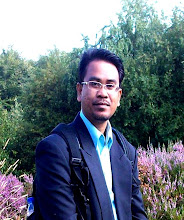
In recent years, Ramadan has had such a bad press amongst Muslim and Non-Muslim as being the month of laziness, over-eating, unproductivity and delays!.
That was until 2010... the year we want to change all of this and fight this stereotype. We want to have a super productive Ramadan, a Ramadan unlike any other Ramadan. We want to live Ramadan in the same spirit as the companions of the Prophet, who lived it fasting, praving, working hard and being productive!.
Ramadan is the month of action, productivity, and high spirit! If you're NOT productive in Ramadan, when will you ever be?
A fundamental shift needs to occur in the mind set of our communities where they see Ramadan as the month of relaxation "because we're fasting".. we need to shift away from that and instead bild the mindset that because we're fasting we should not relax but continue to work hard.
The above will occur if we start to understand the meaning of Ramadan, the opportunity of Ramadan, and the blessing of Ramadan. As a dear friend of mine once told me, "how many Ramadan do we get to see in our life time?
On to practical tips: If you ever struggled to maintain a productive lifestyle during Ramadan, below are our tips for having a truly productive Ramadan!
1. Don't skip Suhoor! It's amazing how many people eat their last meal before a fasting day at 10-11 pm and go to sleep never intending to wake up for suhoor except for a glass of water (maybe) and continue to fast for the next day on just that!. No wonder you become tired and lethargic during the day! To have a productive Ramadan, you need to start your fasting with energy packed suhoor, full of yummy filling food, that would take you through the day on high energy levels. Try to eat it as late as possible (around 30 minutes before fajr), prepare the food the night before and make sure you have 10 alarms set up so you don't miss it!.
2. Master Your Sleep Cycle: Sleep can be problematic during Ramadan- you can't sleep early because of all the night prayers, and you need to wake up early for suhoor and fajr. Tough choice? Actually, it's not really a problem. Here are 2 quick solutions:
- Get over psychological barrier: Get over this idea that unless I have 8 hours of sleep, I cannot be awake next morning or be productive. Just having that thought in mine makes you feel 'sleep deprived' throughout Ramadan. Yes, you should have adequate sleep, but 'adequate' can be interpreted in many ways and I invite you to reseach on some of latest 'sleep science' about how to optimise your night sleep, you'll be suprised at what you find!.
- Master power Naps: Do your best to have a 20 minute nap during the day, these are amzing energy boosters for any productive Muslim during Ramadan! (p.s. Don't do more than 20 minutes).
3. Keep up the spiritual buzz! It's hard to have a productive Ramadan if y ou see fasting and prayer as a 'burden' rather than enjoyable spiritual pursuits. And the only way for you to really enjoy Ramadan is to understand your action: understand why you're fasting, understand why you're praying and why you're reading Qur'an. To help you with this, do attend 'pre Ramadan' course to get yourself buzzing about Ramadan and super excited about it! Learn about reward, welcome it with happiness and leave it with sadness... the more we enjoy Ramadan, the more we'll be able to have a truly Productive Ramadan insha-Allah.
abu aiman
scortland
4 Ramdan 1431H
adapted from The Muslim Paper





